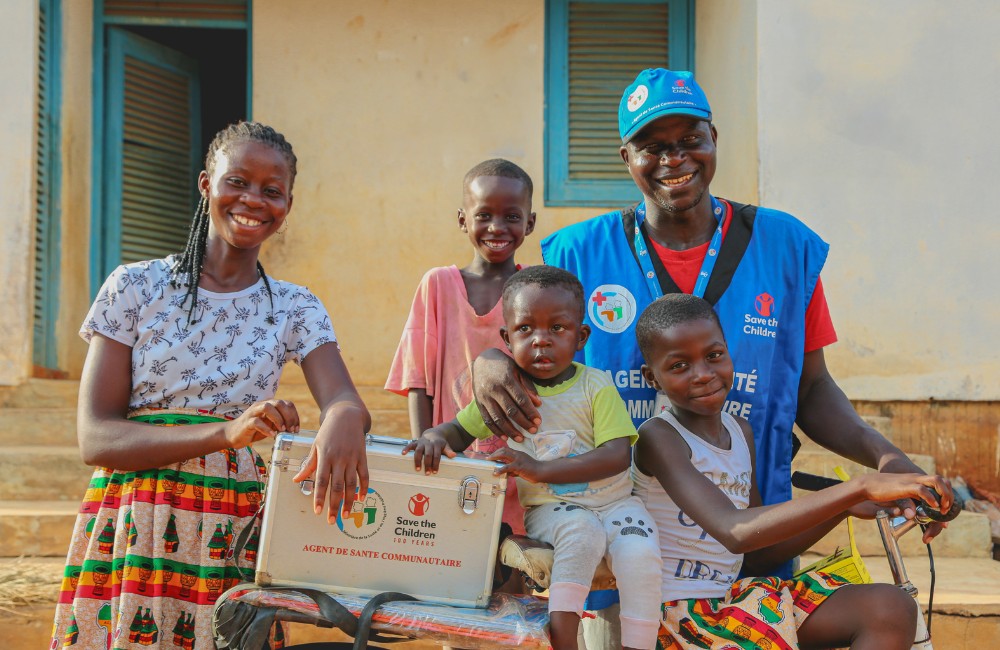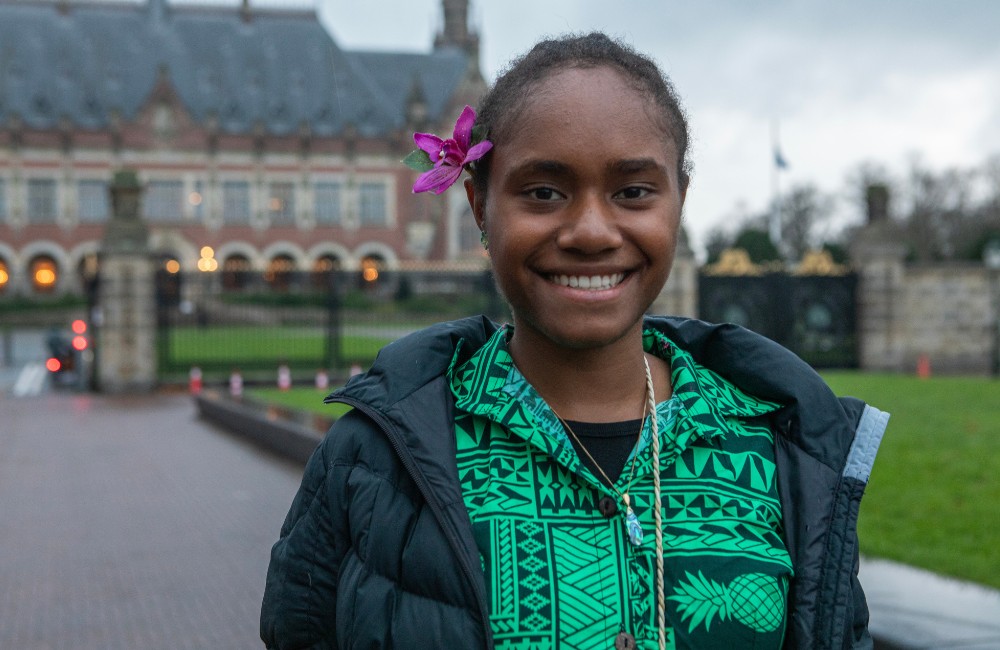The year in review
From a ban on child marriage to blood deliveries by drone for women giving birth, here are 10 positive changes for children that happened in 2024.
1. Sierra Leone bans child marriage following campaign by girls and Save the Children
In a landmark moment this year, Sierra Leone passed a bill to ban child marriage and to criminalise the act of marrying or entering into a union with a child under the age of 18, including provisions for enforcing penalties on offenders.
Save the Children worked with First Lady Fatima Maada Bio, the Ministry of Gender and Children’s Affairs, and other organisations to end child marriage in Sierra Leone and set a pathway for other countries to follow suit. We also trained child marriage champions across the country.
2. The Gambia upholds ban of Female Genital Mutilation
The Gambia threw out a bill seeking to end a ban on the harmful practice of female genital mutilation (FGM) which has widespread health implications for girls and women, including in childbirth.
The bill, if passed, would have overturned a 2015 ban on the practice, which was one of the few legal protections for women and girls in the West African nation which has one of the highest rates of FGM in the world, faced by 73% of women and girls aged 15 to 49.
3. Children participate in G20 for the first time in its 25-year history
Three teenagers from Brazil made history as the first child representatives at the G20 summit, representing over 50,000 children from 60 countries at the event in Brazil. It was the first time that children have been involved in the event’s 25-year history, making a historic moment for children’s participation in global governance.
The teenagers aged 16 and 17 delivered a letter to leaders during the G20 Social Summit in November, which included messages from children around the world. This included their recommendations to leaders on how to promote children’s participation in global decision-making, including in climate decisions, decisions to address hunger and poverty, and mechanisms to achieve economic equity and fair investments.
4. Cobalt mines and catch-up clubs in the Democratic Republic of the Congo
In an initiative to tackle child labour in mines in the Democratic Republic of the Congo, Save the Children ran catch-up clubs to help children in mining stay in school or to successfully return to the classroom.

Students at a catch-up club run by Save the Children in the Democratic Republic of the Congo.
Photo: Save the Children.
Every year tens of thousands of children work at mine sites daily to support families in making ends meet. Save the Children is calling for greater investment in cobalt Artisanal and Small-scale mines communities to help parents to support their children without the necessity of child labour.
5. Community health workers cycle to tackle malaria in Côte d’Ivoire
Equipped with bikes and medical kits, thousands of community health workers in Côte d'Ivoire have helped to reduce cases of malaria by up to 70% in some areas of the country by cycling between remote villages to treat children and educate families.

François, 46, a community health worker in rural Yamoussoukro, Côte d’Ivoire.
Photo: Eve Matheson / Save the Children.
Save the Children has been working in Côte D'Ivoire since 1991. The malaria project is implemented in about 53 health districts in Côte D’Ivoire and in more than 1,270 health areas, in collaboration with six other organisations.
6. Laos becomes first country in Southeast Asia to ban corporal punishment
This year, Laos became the 66th country in the world to outlaw corporal punishment – a crucial milestone in child rights. However, there is still a lot of progress to make. An analysis by Save the Children in 2024 suggests it will take another 60 years to meet the global target to eliminate of all forms of corporal punishment unless the current rate of progress is sped up.
7. Vanuatu teen activist at the International Court of Justice
Vepaia, a young climate activist from Vanuatu, headed to the International Court of Justice in 2024 to advocate for the inclusion of children’s rights in a landmark case. She called for a strong advisory opinion at the world’s highest court that acknowledges countries’ obligations to tackle the climate crisis and protect future generations.
The Advisory Opinion from the international court case is expected next year.

Vepaia, outside the Peace Palace in The Hague, Netherlands.
Photo: Tom Maguire / Save the Children.